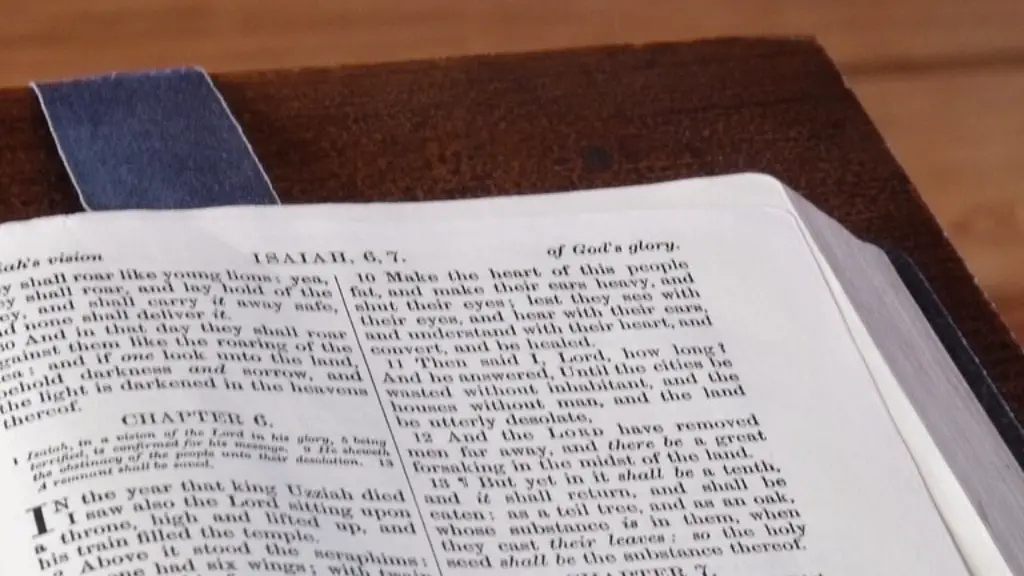Clement of Alexandria was a Christian theologian who taught at the Catechetical School of Alexandria. He is one of the Church Fathers and is regarded as a saint by both the Eastern Orthodox Church and the Roman Catholic Church. Clement is known for his writings about the Logos, which helped shape Christian theology in the late 2nd century.
Clement was a Christian leader who lived in the first century. He is best known for his letter to the church in Corinth, which urged Christians to unity and love.
What did Clement do in the Bible?
Clement is an important figure in early Christianity, said to have been consecrated by Peter the Apostle. He was a leading member of the church in Rome in the late 1st century, and is placed as the second or third bishop of Rome in early church lists. Clement’s writings are important for understanding the development of early Christian thought.
First Clement is a letter written by the church of Rome to the church of Corinth around the end of the first century. The letter is included in the collection of canons known as the “Canons of the Apostles” (Canon 85), which means that it was considered to have canonical authority in at least some regions of early Christianity.
What was St Clement known for
St. Clement is known as the Patron Saint of Marble-Workers. He gave the ultimate sacrifice for his life. His willingness to give his life for his faith remains with us today, as we all struggle to sacrifice our lives so that we may protect his souls and show our love for God.
Clement showed great courage at the end of his life by remaining loyal to God, even though it meant giving up his own life. He could have chosen to live by worshiping idols, but he instead chose to die for his beliefs. This act of bravery and self-sacrifice is an inspiration to us all.
Did Clement wrote Hebrews?
Clement was a contemporary of the apostle Paul and is thought to have been acquainted with him. He was also a student of the apostle Peter. Clement’s dependence upon the Epistle to the Hebrews is acknowledged by nearly everyone. Indeed, the similarities between the two epistles are so conspicuous that already in the second or third century Clement was alleged to be the author of Hebrews.
Clement of Alexandria was a Church Father and theologian who was venerated as a saint in the Roman Catholic Church up until the 17th century. However, he was regarded as a heretic by Photius and the Catholic cult of Clement was suppressed by Pope Sixtus V in 1586.
Who are the 3 Apostolic Fathers?
The Apostolic Fathers were some of the earliest Christian writers after the New Testament. This book contains revised texts of their writings, with introductions, notes, dissertations, and translations. It is a valuable resource for anyone interested in the early Church and its history.
Polycarp was a disciple of John the Apostle, and John had ordained him as a bishop of Smyrna. Polycarp is regarded as one of three chief Apostolic Fathers, along with Clement of Rome and Ignatius of Antioch. He is celebrated as a saint in the Catholic, Orthodox, and Anglican churches.
What does the first Clement mean
When someone is inclined to be merciful, it means that they are lenient or mild in their judgement. This is a positive quality to have, as it shows that the person is forgiving and understanding.
St. Clement is a very important figure in Christianity and is known as the patron saint of stone masons. He is commonly represented with an anchor, which is said to symbolize his strength and stability. St. Clement is also sometimes portrayed with a fountain near him, which is said to represent the miracles he performed during his lifetime.
What is the history of St Clement?
Saint Clement’s story is a fascinating one. He was born in Rome and raised a Christian. He is believed to have been a disciple of Saint Peter, and he eventually succeeded him as the third pope. Clement is known for his writings, which were highly influential in the early Church. He was also martyred for his faith, and his remains are enshrined in Rome. Clement’s story is a powerful testimony to the early Church’s faithfulness in the face of persecution.
The elders of the church are getting on in years, and Clement is concerned that they are not able to continue to effectively lead the congregation. He suggests that the younger members of the church take on more responsibility and take over leadership positions. This will help to ensure that the church remains strong and thriving.
Who are Euodia and Syntyche in Philippians 4 2
It is not clear what the disagreement was about, but it was apparently serious enough that Paul had to give them a specific instruction on how to resolve it. He told them to “agree with one another in the Lord,” and to “not be proud, but be willing to associate with people of low position.” In other words, Paul was telling them to humble themselves and to be willing to work together for the sake of unity in the body of Christ.
Paul’s letter to the Philippians is full of advice on how to live a joyful, meaningful life. One of his key pieces of advice is to focus on our fellowship with Christ. When we do this, we naturally develop an attitude of “reasonableness” that is attractive to others. Additionally, we experience peace through the power of God.
Why was Clement of Alexandria important?
Clement’s program of witnessing was designed to bring about an understanding of the role of Greek philosophy and the Mosaic tradition within the Christian faith. He presented a functional program of witnessing in thought and action to Hellenistic inquirers and Christian believers, hoping that it would lead to a deeper understanding of the Christian faith. Clement’s program was based on the belief that the Mosaic tradition and Greek philosophy were complementary, not contradictory, and that they could be used to support and strengthen the Christian faith.
Paul’s main purpose in writing the Epistle to the Hebrews was to encourage Jewish members of the Church to maintain their faith in Jesus Christ and not to return to their former ways. In Hebrews 10:32-38, Paul specifically mentions that these believers were in danger of returning to their old ways and encourages them to persevere in their faith. Paul also exhorts them to consider the example of those who have gone before them and held fast to their faith, even in the face of persecution and death. Ultimately, Paul wants these Hebrews to understand that their salvation is secure in Christ and that it is worth holding onto their faith, even when things are difficult.
Conclusion
There is some debate among scholars as to who Clement was in the Bible. Some believe he was the Clement mentioned in Philippians 4:3, while others believe he was the author of the New Testament letter that bears his name.
There is no definitive answer to this question. Clement is not mentioned by name in the Bible, but some scholars believe that he was a disciple of Paul and mention him in the book of Philippians. Other scholars believe that Clement was a later Church Father who wrote a letter to the Church in Corinth.





